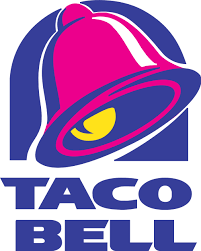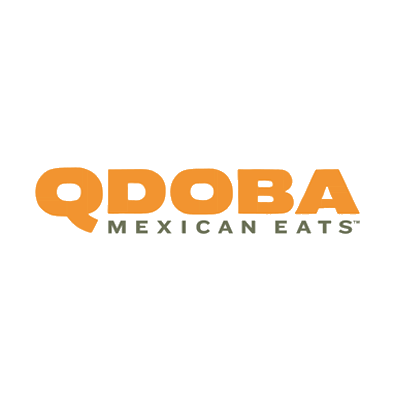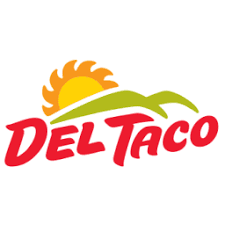Taco Bell Franchise in 2025: Costs, Fee & FDD
Discover the ins and outs of owning a Taco Bell franchise, from initial costs to ongoing fees, and gain insights into what makes this iconic fast-food brand stand out in the competitive market.
Table of Contents:
Taco Bell is an iconic fast-food franchise with a unique twist on Mexican-inspired cuisine. It was founded in 1962 by Glen Bell, who had a passion for creating affordable and flavorful food that would resonate with a wide audience. Starting with a simple menu of tacos, burritos, and a few other items, Taco Bell quickly became a staple in the fast-food industry. Over the decades, it has evolved into one of the most recognized and beloved brands, known for its innovative menu items and creative marketing strategies.
At its core, Taco Bell offers a range of Mexican-inspired dishes, including tacos, burritos, quesadillas, and nachos. The franchise is particularly famous for its unique offerings like the Crunchwrap Supreme, Doritos Locos Tacos, and the Quesarito. These products are designed to appeal to a broad demographic, particularly younger customers who are drawn to bold flavors and value for money. Beyond its standard menu, Taco Bell has also introduced vegetarian options and limited-time specials to keep its offerings fresh and exciting.
Taco Bell’s presence is substantial, with over 7,000 locations in the United States alone and nearly 500 international outlets spread across more than 30 countries. This extensive network serves millions of customers daily, making it a giant in the quick-service restaurant (QSR) industry. The brand’s global reach and ability to adapt its menu to local tastes have helped it maintain relevance and appeal across diverse markets.
As a franchisee, Taco Bell offers a robust support system designed to help you succeed. The franchise provides comprehensive training programs covering everything from restaurant operations to marketing strategies. Additionally, Taco Bell offers ongoing support in site selection, restaurant design, and supply chain management. The brand’s strong marketing presence, coupled with its commitment to innovation, ensures that franchisees are well-equipped to attract and retain customers. With its solid franchise model, Taco Bell presents a compelling opportunity for those looking to invest in a well-established and highly regarded brand.
Taco Bell Franchise Insights
- Taco Bell’s impressive 3-year failure rate of just 2% compared to the industry average of 11% highlights the brand’s stability and the effectiveness of its franchise support system. This low failure rate suggests that investing in a Taco Bell franchise offers a strong likelihood of success, backed by a proven business model and comprehensive franchisee assistance.
- Taco Bell serves over 2 billion customers annually across its global network, showcasing its massive and loyal customer base, which is crucial for franchise success.
- The brand’s innovative approach to menu development is evident in the fact that it introduces over 15 new menu items each year, keeping the offerings fresh and exciting for repeat customers.
- Taco Bell’s partnership with third-party delivery services has driven a 200% increase in delivery orders since 2018, reflecting its ability to adapt to changing consumer preferences.
- The brand has a 97% consumer recognition rate in the U.S., making it one of the most recognizable fast-food brands, which is a huge advantage for franchisees in attracting customers.
- Taco Bell’s commitment to digital innovation is highlighted by its app, which has over 10 million downloads, offering franchisees a robust platform for engaging with tech-savvy customers.
Taco Bell Franchise Key indicators
Growth YOY (%)
3%
vs industry 1%
Total U.S. Franchised Units
7,197
3-Year Failure Rate
2%
vs industry 11%
Total Investment:
$1.58M-$3.98M
How much does it cost to open a Taco Bell franchise?
Understanding the potential investment size and capital requirements is crucial when considering opening a Taco Bell franchise. These financial commitments, including initial franchise fees, equipment costs, and ongoing operational expenses, impact the feasibility and profitability of the venture. Thoroughly evaluating these factors ensures that potential franchisees are prepared for the financial responsibilities and can make informed decisions about their ability to sustain and grow the business, ultimately contributing to long-term success.
Min & Max Investment
Opening a Taco Bell franchise involves several key costs, which are outlined in Item 7 of the Franchise Disclosure Document (FDD). You can see a breakdown of the costs to open a Taco Bell below from the most recent Item 7 below:
| Type of Expenditure | Minimum Investment | Maximum Investment |
|---|---|---|
| Background Check Fee | $500 per person | $700 per person |
| Initial Franchise Fee | $45,000 | $45,000 |
| First Unit Construction Services | $27,250 | $27,250 |
| Optional Real Estate Services | $10,000 | $37,250 |
| Permits, Licenses, Security Deposits | $74,000 | $125,000 |
| Real Property | $250,000 | $1,400,000 |
| Building/Site Construction | $750,000 | $1,700,000 |
| Equipment/Signage/Decor/POS | $375,000 | $570,000 |
| Initial Inventory | $7,000 | $10,000 |
| Grand Opening Expense | $5,000 | $5,000 |
| Additional Funds – 3 months | $40,000 | $60,000 |
| Total Estimated Initial Investment | $1,584,750 | $3,980,200 |
Item 7 in the Franchise Disclosure Document (FDD) is the “Estimated Initial Investment” section. It outlines the total costs a franchisee can expect to incur when starting a franchise, including the initial franchise fee, equipment, inventory, real estate, and other startup expenses. This section is crucial because it provides potential franchisees with a detailed understanding of the financial commitment required, helping them assess affordability and plan their investment strategy effectively.
Required Capital
To open a Taco Bell franchise, the required capital involves both the initial investment costs and a net worth requirement set by Taco Bell. Let’s take a closer look below:
- Initial Investment The total estimated initial investment to open a Taco Bell franchise ranges from approximately $1.58 million to $3.98 million. This range accounts for various factors such as the type of restaurant (traditional or express), location, real estate, construction, equipment, and initial inventory. Assuming that you will finance your franchise investment, you should plan to have 20% of the total investment amount in the form of equity (cash) for the investment.
- Liquid Assets Requirement Taco Bell typically requires franchisees to have a minimum of $750,000 in liquid assets. This ensures that the franchisee has sufficient funds to cover operational costs, unexpected expenses, and maintain the business during the initial phase.
- Net Worth Requirement Taco Bell also assesses the overall net worth of potential franchisees, with a general recommendation that franchisees have a net worth of at least $1,500,000. This includes the value of assets such as real estate, investments, and other personal property, minus any liabilities.
How much does a Taco Bell franchise owner make?
Calculating the salary of a Taco Bell franchise owner involves analyzing gross sales to determine total revenue, assessing operational efficiency to understand profit margins, and accounting for franchisor fees and additional expenses such as rent, utilities, and payroll. Effective management of these factors can significantly impact the profitability and financial success of a Taco Bell franchise owner. This comprehensive financial analysis helps estimate net profits, from which the owner’s salary can be derived. A clear understanding of these factors ensures accurate salary projections and financial planning for sustainable business operations.
Taco Bell Revenue & Gross Sales
Based on publicly available information and our internal research, we estimate that the median Taco Bell gross sales is at $2.1 million as of 2024. The franchise is widely recognized for its strong financial performance, fueled by its innovative menu and the high demand for quick-service Mexican-inspired cuisine. Generally, fast-food franchises like Taco Bell can achieve substantial sales when strategically located in areas with high foot traffic and operated with an emphasis on consistency, speed, and customer satisfaction. By leveraging Taco Bell’s established brand reputation and tapping into the growing consumer demand for convenient, flavorful meals, franchise owners have the potential to generate significant revenue and enjoy attractive returns on their investment.
Which key factors impact the average revenue performance of Taco Bell franchisees?
The U.S. franchisee median gross sales revenue performance for Taco Bell is likely influenced by several key factors. Firstly, the brand’s strong market presence and high consumer recognition drive consistent customer traffic, contributing to steady sales. Taco Bell’s innovative menu offerings, which regularly introduce new and unique items, help attract both repeat customers and new diners. Additionally, the franchise’s strategic location planning, often in high-traffic areas, maximizes exposure and accessibility. Effective marketing campaigns and promotions also play a significant role, keeping the brand top-of-mind and encouraging frequent visits. Finally, the franchise’s focus on operational efficiency and customer service ensures a positive dining experience, fostering customer loyalty and contributing to sustained revenue growth.
Taco Bell Franchise Operational Costs
If you were to open a Taco Bell franchise, there are several key ongoing operational costs to consider:
- Labor Costs Employee wages, benefits, and payroll taxes make up a significant portion of ongoing expenses. Efficient staffing and labor management are crucial to maintain profitability.
- Food and Supply Costs The cost of ingredients and supplies can fluctuate based on market conditions. Keeping track of inventory and managing supplier relationships are vital for controlling these expenses.
- Rent or Mortgage If you’re leasing or purchasing property, rent or mortgage payments will be a significant ongoing cost. This will vary depending on your location and lease agreements.
- Utilities and Maintenance Regular utility bills (electricity, water, gas) and ongoing maintenance costs for equipment and the restaurant facility are essential to budget for.
- Insurance You’ll need various types of insurance, including general liability, workers’ compensation, and property insurance, to protect your business.
- Technology and POS Systems The cost of maintaining and updating your point-of-sale systems, as well as any other technology used for operations and customer service, is an ongoing expense.
- Miscellaneous Expenses This includes everything from cleaning supplies and uniforms to licensing fees and any other operational costs that may arise.
Managing these ongoing operational costs effectively is key to maintaining profitability in your Taco Bell franchise.
Taco Bell Franchise Fees
When considering the ongoing operational costs for a Taco Bell franchise, it’s important to understand the various fees and expenses you’ll need to manage. Here’s a breakdown:
- Grand Opening Expense You are required to spend $5,000 on advertising and promoting the opening of your Taco Bell unit within the first six months. If you submit all paid invoices or proofs of expenditure within nine months of opening, Taco Bell will reimburse you for amounts up to $5,000.
- Period Franchise Fee You’ll pay 5.5% of the unit’s gross sales as a franchise fee. This fee is due on or before the 5th business day following the accounting period in which the sales were made. “Gross Sales” includes all payments received for sales and services, excluding sales taxes, employee meals, overrings, and refunds to customers.
- Marketing Fee A 4.25% fee on gross sales is required to support Taco Bell’s advertising efforts.
- Additional Fees There might be other operational costs not covered in the standard fees, such as technology updates, insurance, or local licensing fees, which should be considered in your budget planning.
Understanding and planning for these fees is crucial to ensuring the financial health and success of your Taco Bell franchise.
Taco Bell Franchise Earnings
While specific earnings data for Taco Bell franchises is not publicly disclosed, we estimate that the median gross sales for a Taco Bell restaurant is $2.1 million as of 2024. This would indicate an average franchisee earnings (EBITDA) of roughly $250,000. Taco Bell, a leader in the fast-food industry with its innovative menu and strong brand loyalty, has the potential to generate significant revenue in the quick-service restaurant sector. Key factors such as location, customer demographics, and effective operational management play a critical role in determining the financial success of a franchise.
Industry benchmarks for similar fast-food franchises indicate that gross sales can vary, but those with high visibility and efficient operations often achieve impressive sales figures. When estimating potential earnings, it’s important to consider the initial investment, as well as ongoing costs like royalty and marketing fees. Franchises with strong support systems and comprehensive training programs, such as Taco Bell, are generally better positioned to achieve profitability.
Prospective franchisees should conduct detailed market research, considering local competition and consumer preferences in their area. By leveraging Taco Bell’s widespread popularity and adhering to established best practices, a franchisee has the potential to build a profitable business that aligns with earnings seen in other successful fast-food franchises. Consulting with current franchisees and financial advisors can also provide valuable insights into realistic earnings expectations.
How to Open a Taco Bell Franchise
Becoming a Taco Bell franchisee involves a multi-step process that begins with initial inquiry and ends with the start of operations for your new business. Here’s an overview of the process:
- Initial Inquiry You or your franchise specialist submits an initial inquiry basic information about your interest and background. You should also conduct thorough research on the franchise, including seeing all of the information available on the Vetted Biz franchise intelligence platform, including access to the most recent Franchise Disclosure Document (FDD).
- Application If your initial inquiry is accepted, you’ll be invited to complete a detailed application. This application will require comprehensive information about your personal and professional background, financial status, and your motivation for becoming a Taco Bell franchisee.
- Interview Process Once you’ve reviewed the FDD and decided to proceed, you’ll participate in a series of interviews. These may include phone interviews and meetings with Taco Bell representatives to assess your qualifications, business experience, and alignment with the brand’s values.
- Background and Financial Check A thorough background check and financial review are conducted to ensure you meet Taco Bell’s standards for franchisees. This includes verifying your financial stability and your ability to meet the franchise’s financial requirements.
- Evaluation and Approval After the interviews and checks, Taco Bell will evaluate your overall suitability as a franchisee. If you pass this stage, you’ll receive approval to move forward with the franchise process.
- Financing and Site Selection Once approved, you’ll secure financing for your franchise and begin the process of selecting a suitable location for your restaurant. Taco Bell provides assistance in market analysis and site selection to ensure your franchise is set up in a prime location.
- Training Program You’ll undergo an extensive training program provided by Taco Bell, covering all aspects of running a successful franchise, including operations, marketing, and customer service.
- Construction and Build-Out With Taco Bell’s guidance, you’ll proceed with the construction and outfitting of your restaurant. This step involves working with approved contractors to ensure your location meets Taco Bell’s brand standards.
- Pre-Opening and Grand Opening As your restaurant nears completion, you’ll focus on final preparations, including team hiring, additional training, and marketing plans for your grand opening.
- Start of Operations Finally, you’ll open your Taco Bell franchise to the public. From this point, you’ll receive ongoing support from Taco Bell to help ensure the success and smooth operation of your business.
Pros & Cons
Pros
Strong Brand Recognition: Taco Bell is one of the most recognizable and popular fast-food brands in the U.S. and globally, which can drive consistent customer traffic to your franchise.
Proven Business Model: With a well-established and successful business model, Taco Bell offers a reliable framework for franchisees, reducing the risks associated with starting a new business.
Innovative Menu Offerings: Taco Bell is known for its creativity and regular introduction of new menu items, which helps maintain customer interest and drive repeat business.
Global Market Presence: With over 7,000 locations in the U.S. and nearly 500 internationally, Taco Bell’s widespread presence enhances its market reach and brand loyalty.
Cons
High Initial Investment: The initial investment for a Taco Bell franchise can be substantial, ranging from $1.58 million to $3.98 million, which might be a barrier for some potential franchisees.
Competitive Fast-Food Market: The fast-food industry is highly competitive, with numerous players vying for market share. This can make it challenging to stand out, especially in saturated markets.
Operational Demands: Running a fast-food franchise like Taco Bell requires significant time, effort, and management skills, particularly in maintaining consistent quality and customer service.
Limited Menu Customization: As a franchisee, you’ll need to adhere strictly to Taco Bell’s established menu and operational procedures, leaving little room for local customization or experimentation.



